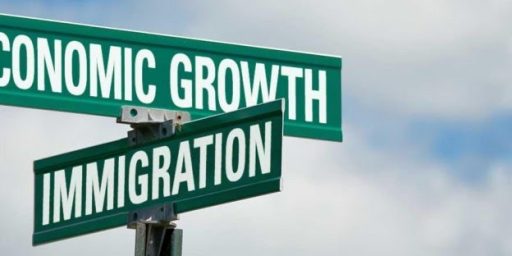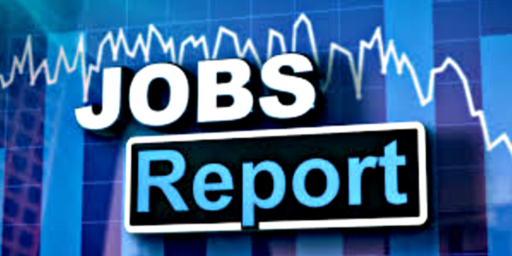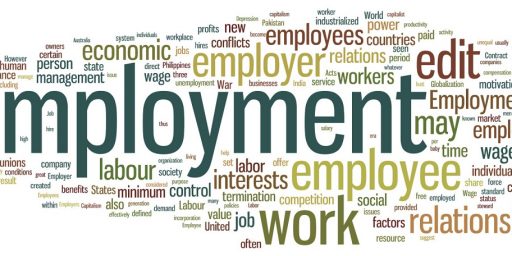Unemployment Up to 9.8%
Unemployment rose to 9.8% from 9.6% in November.
More bad economic news:
39,000 jobs were added to the economy in November – the worst number since September, government says.
Unemployment rose to 9.8% from 9.6% and stock futures turn lower.
The numbers are a huge disappointment, considering economists surveyed by CNNMoney.com expect a similar gain for November – they’re predicting 150,000 jobs were added to payrolls during the month.
Bernard Baumohl, chief economist of the Economic Outlook Group,was more bullish, having predicted another 235,000 added in November. “There’s a general realization among businesses that the economic recovery is real, and that since so many of them have cut so sharply, there is now a rush to hire the most skilled workers at this point,” Baumohl said before the report came out.
This is especially lousy, given that we’d normally expect a hiring spike for the holiday retail season.






Some interesting charts here:
http://timiacono.com/index.php/2010/12/03/payrolls-up-39k-jobless-rate-rises-to-9-8/
And that corporations are hanging onto records amounts of cash after record high profit rates.
But it must be because too many people collect unemployment benefits. I mean, if they’d just get off their lazy butts and get a job, this wouldn’t be an issue.
Very disappointing indeed. I had hoped that the original yr over yr Holday sales figures might be an indicator of strength. It appears that may have been illusory.
More diappointing news:
Manufacturing orders fall 0.9% in October, durable goods down 3.4%
I had thought the inventory data looked a little like over-production in this past fall.
What? I thought the recession was over?
Alex, companies hold to cash in uncertain times. Would you expect them to be spending like drunken sailors? Tax increases, Obamacare, carbon caps, and various other threatening government intervention still has business frozen with fear. We buy what we have to and hold off on taking risks.
Also what permanent jobs were added were largely in healthcare. With 3/5s of healthcare consisting of government spending that doesn’t seem like a sustainable pattern to me.
Shorter Steve P: Since all companies are like me, they fear Obama as their major concern.
If we could be serious for a minute (a rare event for me).
jp – I wouldn’t be so quick to be dismissive of Plunk’s comment with “because I think etc.” I’ve noted before that by direct and through inetermediaries I get feedback from literally thousands of small business owners each year of what is on their minds. And I’m an owner myself in numerous small businesses. It is inconceiveble to me that somehow my sample set is just the irrational “sky is falling” henney-pennys, or ignorant buffoons. What Steve P said is what they think.
A better assertion would be to say they are just overwrought, or just wrong. But to deny that is what they think is like denying the sky is blue. And who can blame them?
I hope Brian Knapp’s comment was tongue in cheek. If not, it was really light. Corporations are holding onto their cash for a reason. They aren’t stupid, and they aren’t just greedy pigs. They have legitimate concerns about the current political environment and its affect on the economy. And for those who like to just cite “lack of demand,” I would note that lack of demand is not something mutually exclusive of concerns about taxes, employment costs etc. When you here a Democrat politician giving speeches almost daily about how we are going to give people free stuff and solve our problems on the backs of “the rich,” you feel like a guy/gal with a bullseye on your back. It does not encourage risk taking, investment, growth and employment. In fact, it encourages the opposite.
Alex, companies hold to cash in uncertain times. Would you expect them to be spending like drunken sailors? Tax increases, Obamacare, carbon caps, and various other threatening government intervention still has business frozen with fear. We buy what we have to and hold off on taking risks.
Define uncertain. Risk is a part of business. Business has better tools to measure trends and forecast than ever before. Business has never been so unrisky. And like muscles, businesses either grow or shrink, they rarely stay constant. Risk is necessary for the health of the corporation. Avoiding risk is avoiding growth.
What tax increases? Corporate subsidies have never been higher and tax rates never lower!
Obamacare will not increase health care costs at a higher rate than the status quo. Because more people are in the risk pool, it may mitigate the rates until a better solution comes along. And corporations have a very good idea as to how it will affect them.
Define “threatening intervention”. Regulation on its own merits is not a “threat” no matter what you think. Is government saying “whatever you do, don’t employ people, take risks, or make money!”? No. They are saying the opposite. They are just saying, you know, don’t steal, deceive, or hurt anyone while you do those things. OSHA, whistleblower protection, EPA, SEC, and property crime prevention are not bad for business or society. What other regulation is there that is unnecessarily burdensome? I honestly can’t think of any. If it exists, yes, by all means, get rid of it and the costs it imposes.
This corporate “fear” is unfounded when it comes to government. It is the past practices of the coporations themselves that induces this current fear and uncertainty.
Drew: “A better assertion would be to say they are just overwrought, or just wrong. But to deny that is what they think is like denying the sky is blue. And who can blame them?”
I think it’s in good part just what they are comfortable talking about. Obama makes an easier villain than any particular Business Cycle Theory. It’s easy to drop a name, or a party, and get some in-group positive feedback.
I think you and I might put the bust down to a Credit Cycle more than most, but that doesn’t make quite such of a lunchtime gripe, does it? “Darn this consumer deleveraging, it’s making my spring projections look bad.”
Oh Noes:
Using a unique administrative level dataset from a large and diverse U.S. financial institution, we test the impact of rewards on credit card spending and debt. Specifically, we study the impact of cash-back rewards on individuals before and during their enrollment in the program. We find that with an average cash-back reward of $25, spending and debt increases by $79 and $191 a month, respectively during the first quarter. Furthermore, we find that cardholders who do not use their card prior to the cash-back program increase their spending and debt more than cardholders with debt prior to the cash-back program. In addition, we find that 11 percent of cardholders that did not use their cards in the previous 3 months prior to the cash-back program spent at least $50 in the first month of the program. Finally, we find heterogeneous responses by demographic and credit constraint characteristics.””
http://paul.kedrosky.com/archives/2010/12/banks_and_cash.html
I know you don’t think the country needs Ms. Warren, but geez, given data like that …
jp –
I agree that the Credit Cycle is an overarching factor. But so was Volcker killing inflation in 80-82. There is a big difference. I don’t think any small businessmen look at the Obama, Reid and Pelosi environment and say “boy, this is the right tone and environment for business expansion.” With Reagan, they did.
I’m not here to change your worldview, but to simply discount businessmen’s current behavior as lunchtime grousing is a gevious error. And its the error the left, in the aggregate, is making. Its their political Kool-Aid. These people are acting rationaly, and I don’t forsee a change as long as they are painted as “the rich,” or the golden geese with a bullseye on their back.
All of this distresses me because I don’t think either you or I are particularly harmed right now, but the proverbial Average Joe is. He finds himself in an ideological meat grinder, and its so unecessary,and, IMHO, it won’t change until the Obama’s of the world do not hold the economic control.
No doubt Obama could build a better narrative, but the narrative cannot really turn the cycle. Baring some (tech?) boom, that will just take time. Again, not a feel-good gripe.
> Baring some (tech?) boom
There is the question – what is the next driver? We have a lot of excess inventory in commercial real estate. Lots of recently minted suburban mcmansions. Too many shopping malls. Reality is that not everyone can afford a new car every three years, or a closet full of cashmere sweaters.
But when you look at companies that actually innovate – Apple or Amazon for example, they are going like a bat out of hell. Wireless is doing very well, plenty of innovation there. One commonality they are producing is value, both for shareholders and customers.
We keep looking for a road map to get us back to “where we were” and it may not exist. Is the government party of the problem? Almost certainly. But we have to look at the other side of the equation as well. Corporations today tend to be fixated on short term performance, which can result in a small group of people making a killing, but does not lend itself to building lasting value or stability.
That’s Obama nightmare!
Another flavor of Kool-Aid tastes like blaming so much on the “Obama, Reid, and Pelosi environment”…oh, if only, if only they would just get out of the way, cut all the taxes and cut all the regulation, we would enter some nirvana of happiness and joy…and who knew that wanting the top tax rate to go up a few percentage points meant “putting a bullseye on the back of the golden geese”…
Everybody remember Chauncy Gardner?
“Yes. In the garden, growth has it seasons. First comes spring and summer, but then we have fall and winter. And then we get spring and summer again.”
Whoever manages to be President in springtime will reap the rewards.